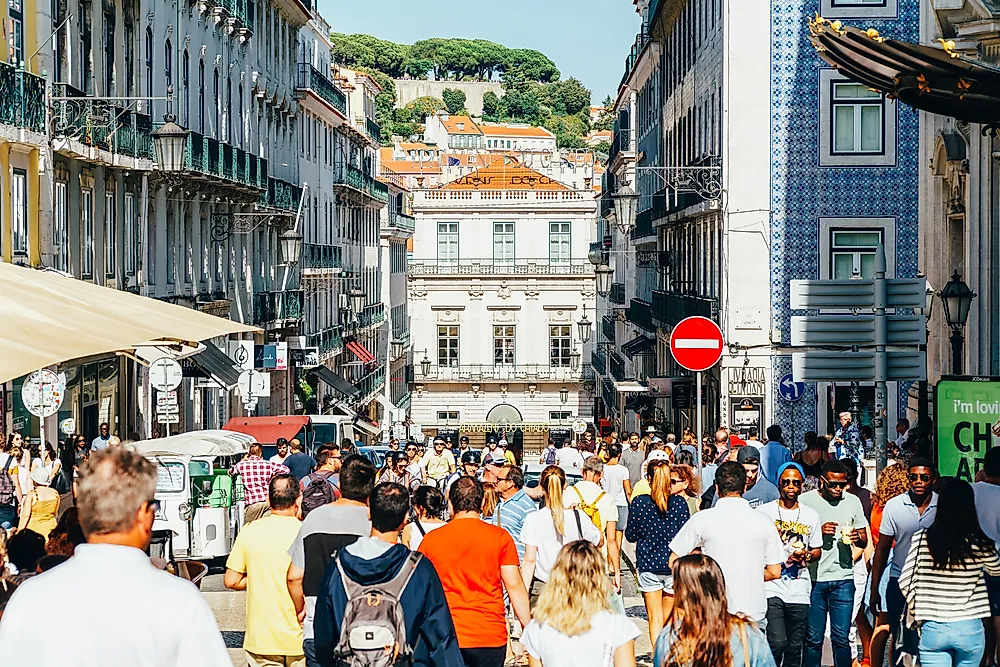The Largest Ethnic Groups in Portugal

Portugal is a nation located along the Atlantic coast of the Iberian Peninsula in southwestern Europe. The country has a total of 10.3 million people, the majority of whom are of Portuguese descent. Ethnic Portuguese account for 95% of the population, while the remaining 5% are composed of minority groups of Brazilians, Han Chinese, and people from Portugal’s former colonies in Africa and Asia. The ethnic Portuguese and minority groups are united through the national language (Portuguese), culture, and religion (Roman Catholicism). Portugal's government promotes ethnic unity and homogeneity by claiming that identifying people based on ethnic backgrounds promotes discrimination.
Ethnic Groups in Portugal
Ethnic Portuguese
Portugal is the first unified-state in Western Europe since its population is homogenous. Since the Paleolithic period, Portugal’s population has remained remarkably homogeneous and exhibited little ethnic diversity. The vast majority of people in Portugal belong to the Portuguese ethnic group. This lack of ethnic, cultural, and religious diversity is attributed to the country's geographic location. Portugal is isolated from the rest of the western European countries, and requires travel through Spain or by boat. Until the 15th century, few European countries, except Portugal, sailed outside of the Mediterranean region, and therefore other ethnic groups were unable to reach the country. Despite the country's homogeneity, there are regional differences exhibited in the traditions of each region based on the ancestry of the people. For example, the northern region tends to have conservative Catholics, while the west has been influenced by Islam and Protestantism.
Minority Groups
All minority groups make up 5% of Portugal’s population, and therefore no single ethnic group plays a major role in the country’s society. The largest minority population are Africans from Cape Verde, which is located off the west coast of Africa. Cape Verde was Portugal’s oldest colony, and after gaining independence in the 20th century a vast majority of its residents resettled in Portugal. Other minority groups include Brazilians, Han Chinese, and Marrano populations. There is also a Gypsy population who live in the Algarve region. Despite government efforts to integrate the Gypsy population into Portuguese society, they remain a seminomadic group that earns their living by begging, fortune-telling, handicrafts, and trading.
Government efforts to assimilate minority groups into the broader Portuguese society have remained futile due to the disparity in settlement patterns. Additionally, the small number of minority groups has prevented racial discrimination and cultural prejudice from being a pronounced issue in the country.
Promoting Ethnic Diversity in Portugal
Although not officially affirmed at the constitutional, legislative, or parliamentary levels, Portugal is transitioning from a country with significant rates of emigration to one that promotes immigration. Intercultural dialogues at various legislative levels are ongoing in a bid to promote social cohesion, cultural inclusion, and respect for cultural diversity in Portugal. With globalization aided by modern technology, more regions have opened up and allowed the integration of both ethnic Portuguese and minority groups.
The Largest Ethnic Groups in Portugal
| Rank | Ethnicity | Percentage of Population (%) |
|---|---|---|
| 1 | Ethnic Portuguese | 95 |
| 2 | Other minority groups | 5 |











